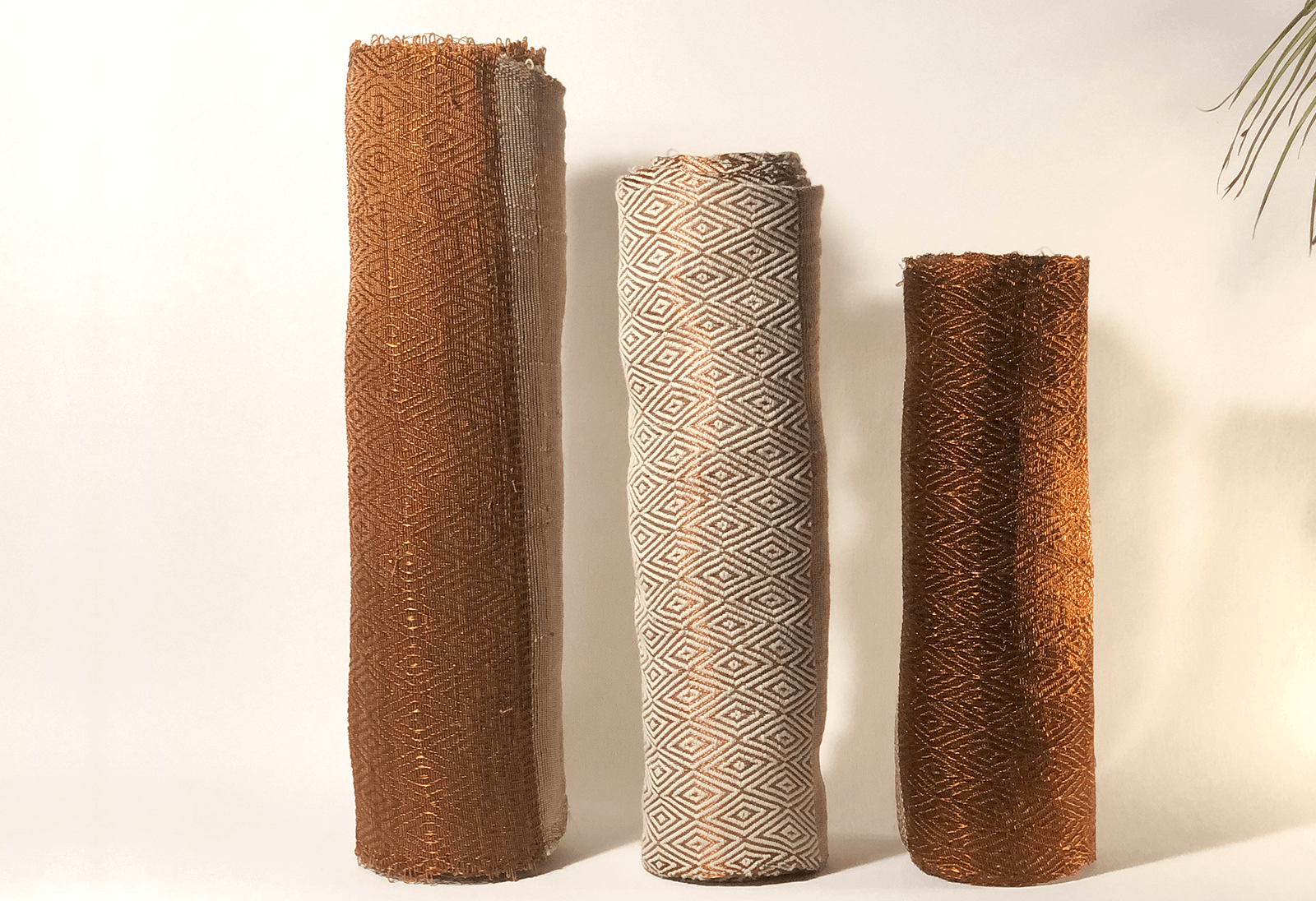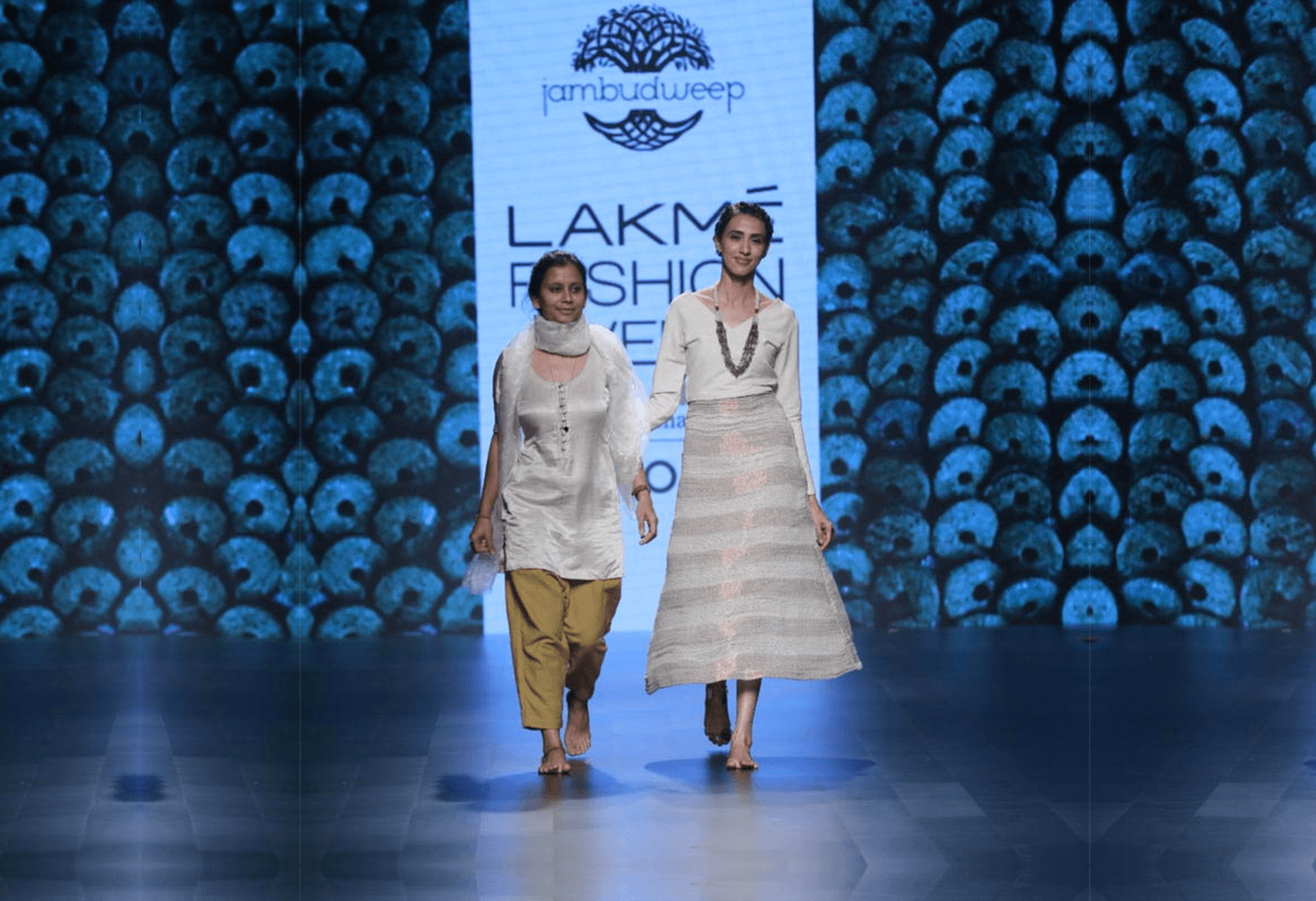(January 17, 2022) “People often think I love waste, the truth is I hate it so much that I want it to end at its generation point,” reads the welcome note on Indian textile designer and entrepreneur Shubhi Sachan’s website. The brain behind Material Library of India, she is on a mission to sift through tonnes of urban waste that’s generated every year and give it a fresh lease of life by reusing and repurposing it. From making shoes with aluminium waste to trendy pillows from industrial waste, the Lexus Design Award finalist (2018) is making sustainable living sing with her impressive body of work.
“A majority of the waste that ends up in landfills and dump yards can be reused and recycled. Unfortunately, not everyone is paying attention to it. So I took it upon myself to create alternative products using industrial and agricultural waste that are less destructive to the environment,” says the Noida-based Shubhi, whose work is currently being exhibited at London’s Design Museum.

How it all began
After six years of working with the fashion and textile industry, the 35-year-old’s journey with sustainability began in 2015, and since then, there has been no looking back for this consultant designer.
Born and raised in Lucknow to a government employee father and a teacher mother, Shubhi had to face a lot of rejection. The not so academically inclined girl, often found herself being compared to her older brother who aimed to be an engineer. “I was often told ‘Iska kuch nai no payega’,” reveals the 35-year-old Indian designer. However, this constant dismissal fuelled her to prove everyone wrong.
Passionate about art and crafts since she was a child, Shubhi was keen to test waters and try her hand at textile designing. “My mother was always supportive of my decisions but this one time my father gave me the liberty to experiment and I grabbed the opportunity with both hands,” Shubhi tells Global Indian. Her dream took her to Apeejay Institute of Design in Delhi where she studied for the next four years. “This was a turning point in my journey as I blossomed into a confident designer. From someone who was often neglected in school, I’d transformed into a shining star in college and it gave me the right boost,” says the designer.

New goals in sight
Her zeal to broaden her horizons landed her in Mumbai where she found her maiden job at Aditiany Inc, a design firm that works for international fashion houses. For the next five years, she worked as a surface designer with luxury brands like Givenchy, Ralph Lauren, and Alexander McQueen. “While working there, I realised the kind of waste that was being generated in the process. We had these stacks full of 1mm material pieces that couldn’t be used anywhere. It was while working on the Givenchy collection, it dawned upon me that these brands were chasing perfection on the surface while ignoring so much imperfection (waste) on the backend,” adds the Indian designer, who was keen to bring about change.
This quest took her to Central Saint Martins’ School of Art and Design in London in 2014 to do her MA in Material Futures. “It played a crucial role in my journey as it armed me with a multi-faceted approach towards the society,” says the mother of a three-year-old.
Upon her graduation from St Martins, she embarked on her journey to sustainability after realising the huge contrast between the materiality involved in the process of making products vs the presentation of the finished objects. “It was quite an unsettling feeling for me. I knew I had reached a point where talking about the problem wasn’t enough. I had to come up with a solution,” she adds.

To new beginnings
This idea gave birth to the Material Library of India in 2017, a hub of creativity and imagination that’s focused on investigating value chains and making waste material come to life again. “It’s a place for innovation where we design for repurposing and recycling,” adds the TEDx speaker whose R&D consultancy is dedicated to working with industrial and agricultural waste.
Recalling Project Punah with Godrej Boyce in 2015, Shubhi says that this was her first commission on sustainability with a corporate house wherein she recycled 1,80,000 pairs of protective rubber, cotton, and other gloves and turned them into raw material used in packaging. “We prepared a meticulously detailed data sheet about the products produced and the kind of waste that came out of it. We documented 734 materials and only 12 out of them could be recycled,” adds Shubhi pointing out the grim reality of waste material. Using the waste, she weaved a new fabric that could be used in apparel design or made into ropes that can be used to line chairs and tables. The textile designer calls it one of her most interesting projects as she saw “a conglomerate adopting repurposing and realising it as the need of the hour.”
Next, she created an ensemble collection for Lakme Fashion Week wherein she transformed everyday waste into everyday fashion. “Making people understand the utility of waste material was the idea behind it,” adds the founder of Material Library of India, who plans to open the library for people to visit.

Towards the larger picture
“We are categorising and cataloguing waste and the materials made from it. We want people to come and see the problem for themselves. We want to open the floor for discussion for people to understand the scale of the problem,” adds Shubhi.
In 2019, she joined forces with Mallika Reddy to develop Cancelled Plans, a streetwear brand made purely out of metal, paper, cloth, vinyl sheets, and plastic waste. “The idea was to come up with a way to treat waste as raw material. It’s the perfect example that brands can be conceived from waste and make sense to the economic world,” the Indian designer explains.
Some of her fabric products made from plastic waste are displayed at the ongoing exhibition at London. “We have used a variety of plastic to create a 100 percent waste fabric for the exhibition,” reveals Shubhi whose work has earlier been exhibited in Germany, Italy, and India.
It’s been six years since she began working on sustainability, but the design consultant has had her share of challenges. “Not many are open to the idea of accepting that waste can be repurposed, and that’s the reason not many are investing in the research,” says Shubhi, who adds the biggest challenge is the mindset – many believe that “it should be cheaper as it’s made from waste.”
When not providing consultancy services to corporate houses, Shubhi loves to paint using natural colours. “During the pandemic, I started collecting seeds of plants like guava and tamarind, and launched my seed library,” adds Shubhi, who likes to use her free time productively.
Live consciously is her advice to youngsters. “Don’t look for a quick fix to the problem, instead look at the larger picture. Conceive a design or product in a way that it can be repurposed at a later stage,” she signs off.
- Follow Shubhi Sachan on Linkedin



